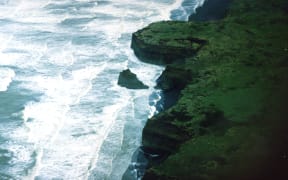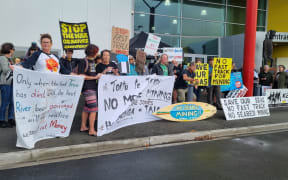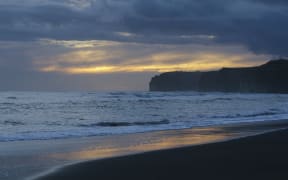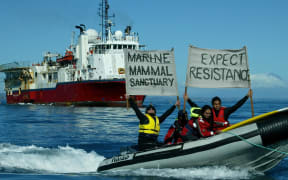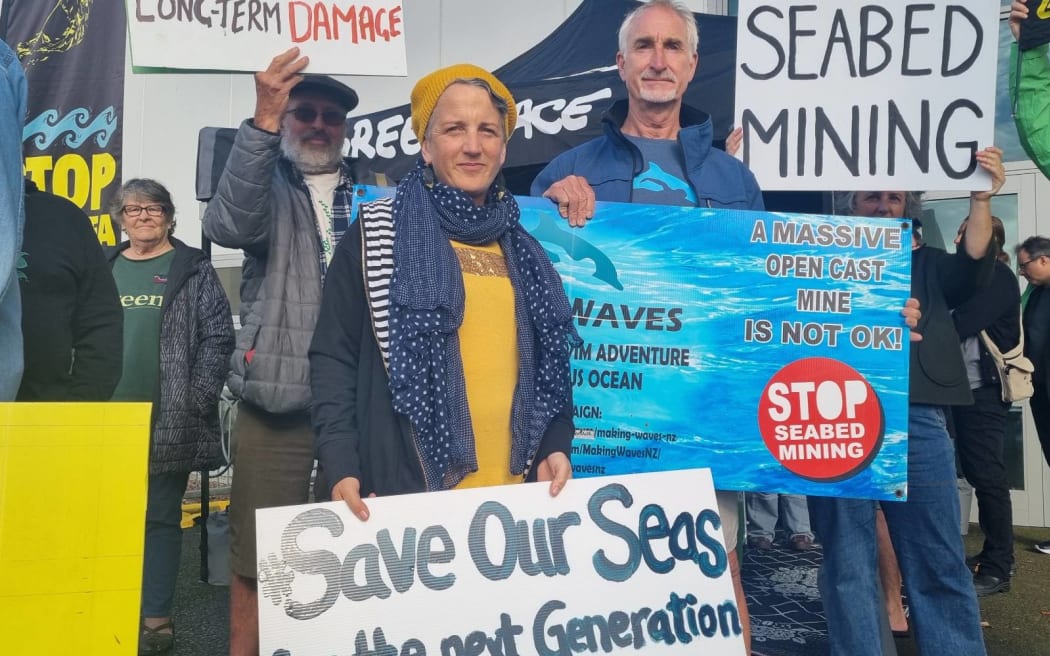
Jacqs Dwyer. Photo: Robin Martin / RNZ
Protesters made their feelings clear on Wednesday outside a hearing reconsidering an application to mine the seabed in the Taranaki Bight.
The Environmental Protection Authority (EPA) is revisiting Trans-Tasman Resources' (TTR) bid for consents to suck up 50 million tonnes of ironsands a year for 30 years off the coast of Patea.
TTR wants to extract iron, titanium and vanadium, and return millions of tonnes of unwanted material back to the seafloor. It says it can be done environmentally safely and create a billion-dollar industry.
Taranaki local Jacqs Dwyer was dead against it.
"I'm a Patea resident and just don't want to see this kind of destruction off our coastline. I just passionately want to stop it."
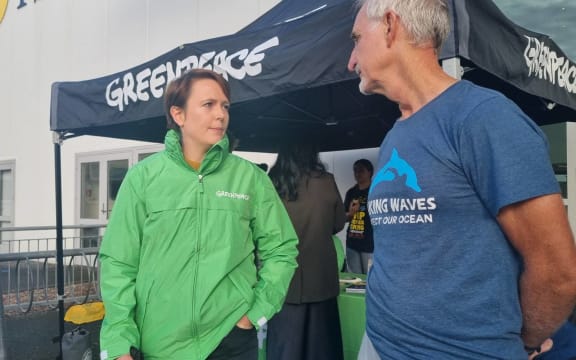
Greenpeace's Amanda Larsen (left). Photo: Robin Martin / RNZ
Dwyer was not convinced the region would benefit economically either.
"No, it won't. No, it definitely won't. It will bring destruction and there's a small amount of profit that goes to offshore companies, certainly not to New Zealand."
Aharina Prime, 20, was one of the large number of Ngati Ruanui iwi outside the EPA hearing.
"I'm here to support my iwi. I'm here to support the taiao (natural resources) and our moana, so we can keep our moana so there's no hurt done to our moana."
TTR had its consents application declined in 2016, then was successful in 2017- only to be quashed again through appeals in the Supreme Court.
Kiwis Against Seabed Mining chairperson Cindy Baxter could not believe it had come to this.
"It's ridiculous that we have to come back to these hearings again and again to try and prove to everyone that seabed mining is going to cause a huge amount of harm.
"But we think there's no way that this company can prove that seabed mining causes no material harm, and that is the test set by the Supreme Court."
No one from TTR was at Wednesday's hearing - King's Counsel Justin Smith was representing the company. He told the hearing that last time around, the EPA decision-making committee (DMC) had not properly considered how harm to the environment could be mitigated.
"What the DMC had to do if it was going to allow the consent - I'm really talking more about the discharge consent than anything else - was to say, 'Yes, there will be harm and these are the conditions that have been suggested, and they're the best that can be managed and the best that the applicant can live with.' And the missing bit is whether and how that will avoid, mitigate or remedy the harm."
Committee chairperson Lyn Stevens made it clear that could still be a high hurdle.
"What if after looking at the evidence there are uncertainties?"
To which Smith replied: "So far as the marine consents are concerned you could have adaptive management, but that's not proffered and so if there were uncertainties so that there was insufficient information, the statutory outcome the consent application would have to be declined."
To which Stevens added: "It would."
Māori Party co-leader - and Ngati Ruanui iwi member - Debbie Ngarewa-Packer warned against using fast-track legislation to push consents through.
"What we've got is a fast-track for short-term politics, but this community will carry on, so if they go out into the ocean and get started we'll be out there in boats. I think they underestimate our resilience."
The hearing continues this week before reconvening in April and May.
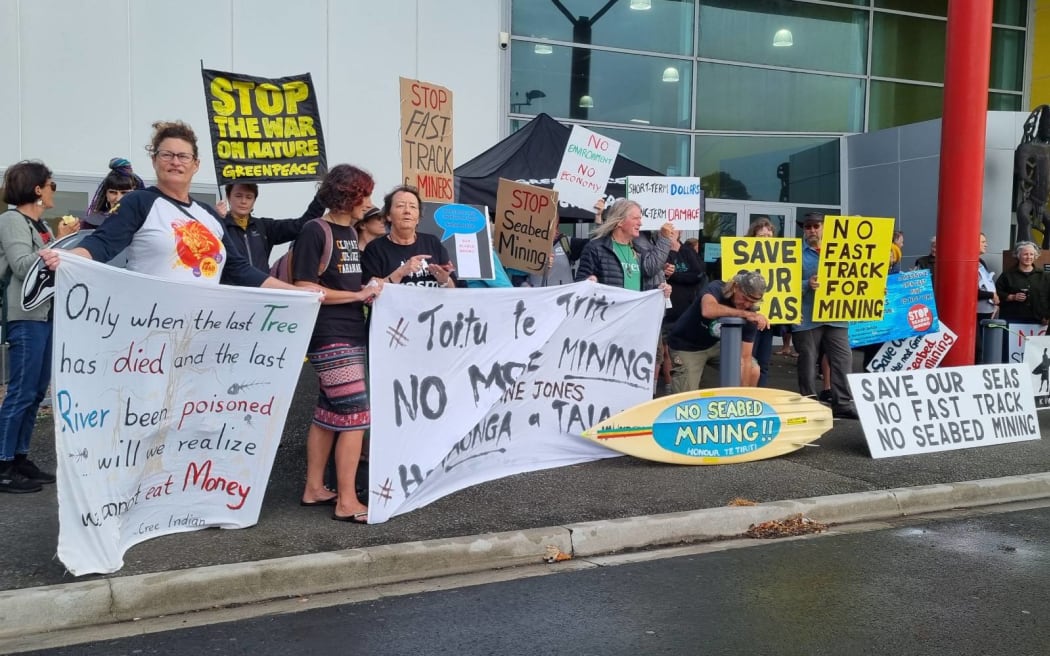
A protest against seabed mining. Photo: Robin Martin / RNZ
TTR executive chairperson Alan Eggers flatly rejected the protesters' claims.
"Those statements are just incorrect, unsubstantiated and not supported by the weight of evidence that we've put before the EPA," he said. "The project is taking place 22 to 36 kilometres offshore, and will not have any effect whatsoever on near-shore environment along the south Taranaki Bight coast."
That was backed up by research from NIWA, which showed there were "no effects on commercial fishing or recreational fishing whatsoever", he said.
The project would benefit the local and national economy, including 300 direct jobs in the region, nearly $1 billion annually in foreign exchange earnings, and production of essential minerals required for the transition to a low-carbon economy, Eggers said.
Protesters claimed they had not seen any new evidence from the company since previous hearings. Eggers clarified the evidence previously presented remained, but details had been updated.
"This is just updating some of that information to ensure that it's current, when it's put again before the DMC," he said.
"I note that some of our opponents have claimed that we haven't presented any new evidence since 2016. Well that's largely true because we presented a very comprehensive application at the time."
